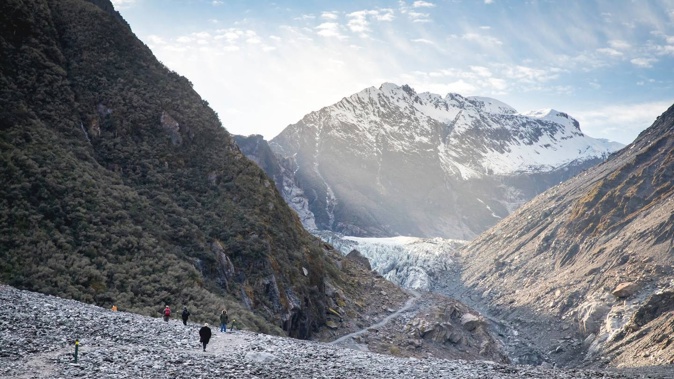
A new report forecasting potential trends in the travel industry has highlighted an urgent need for transformation, pointing to regenerative models as a necessity for future-proofing travel businesses.
The report comes from Intrepid Travel and The Future Laboratory, a strategic consultancy firm that works to forecast industry trends and offer guidance for organisations looking to shift their strategy to better suit consumer demands.
The report labels travel as “an unsustainable industry” and says it is approaching a crucial tipping point due to the obvious presence of the climate crisis. It cites glacier and sea ice melt, extreme weather patterns and 387 natural disasters in 2022, from Pakistan’s monsoon floods to the European heatwaves and Hawaii wildfires.
According to data from 2018, the travel industry is responsible for 8 per cent of CO2 emissions (2.5 per cent of those emissions are produced by aviation).
In considering these alarming factors, the report relays how the industry might pivot to produce a more appealing experience for climate-conscious consumers (called “Travel Transformers”) while lowering and counteracting carbon emissions. This leads to the proposition of regenerative travel as a pillar in future offerings for tourists.
The term regenerative tourism was popularised through a New York Times article titled “Move Over, Sustainable Travel. Regenerative Travel Has Arrived.”
The piece explores how the concept might be a better alternative to “sustainable travel” which, in practice, largely aims to slow the pace of degradation. Regenerative travel aims to produce experiences where travellers can engage meaningfully with their destinations and leave them in a better place than when they arrived. It expands the positive impacts of travel beyond just financial wellbeing, considering environmental, cultural and social wellbeing.
New Zealand’s Ministry of Tourism, which is currently focused on building regenerative travel models, echoes this idea. It notes the concept is “about giving back more to people and places than it takes. It actively enriches our communities and helps protect and restore our environment.”
In the report, Darrell Wade, co-founder and chairman of Intrepid Travel, notes current models of international and domestic travel largely do not fit within this regenerative concept.
“It’s extractive – and this cannot continue for much longer.”
The report suggests the industry is at a crossroads, one path plagued by climate breakdown and “tourism restrictions” and another where regenerative breakthroughs open up to a broader and better future.
In the first scenario, the report projects that the travel industry will be “forced to adapt” in a variety of ways by 2040. It suggests there could be widespread use of individual carbon passports by travellers (limiting their allowance for travel), a growth in the demand for cooler and safer locations and a rise in the use of virtual and digital holidays (with virtual reality or the metaverse).
As a solution to this future imagining, the report proposes the need for the travel industry to offer regenerative travel to consumers.
People-positive travel would see conscious travellers seeking a new type of hospitality that creates positive environmental and social impact in their destinations (and creates a sense of understanding about the history of the place they visit). No-trace experiences would allow people to access nomadic trips that don’t produce negative impacts on the environment. Eco-mobility would allow travellers to move through their trip without creating impacts on the environment (including sustainable aviation fuels, zero-emission cruise ships and sleeper trains). Real-time travel metrics accessible to travellers, designed so they can “hold themselves to account” are also floated as a potential avenue for decreasing emissions.
Take your Radio, Podcasts and Music with you









